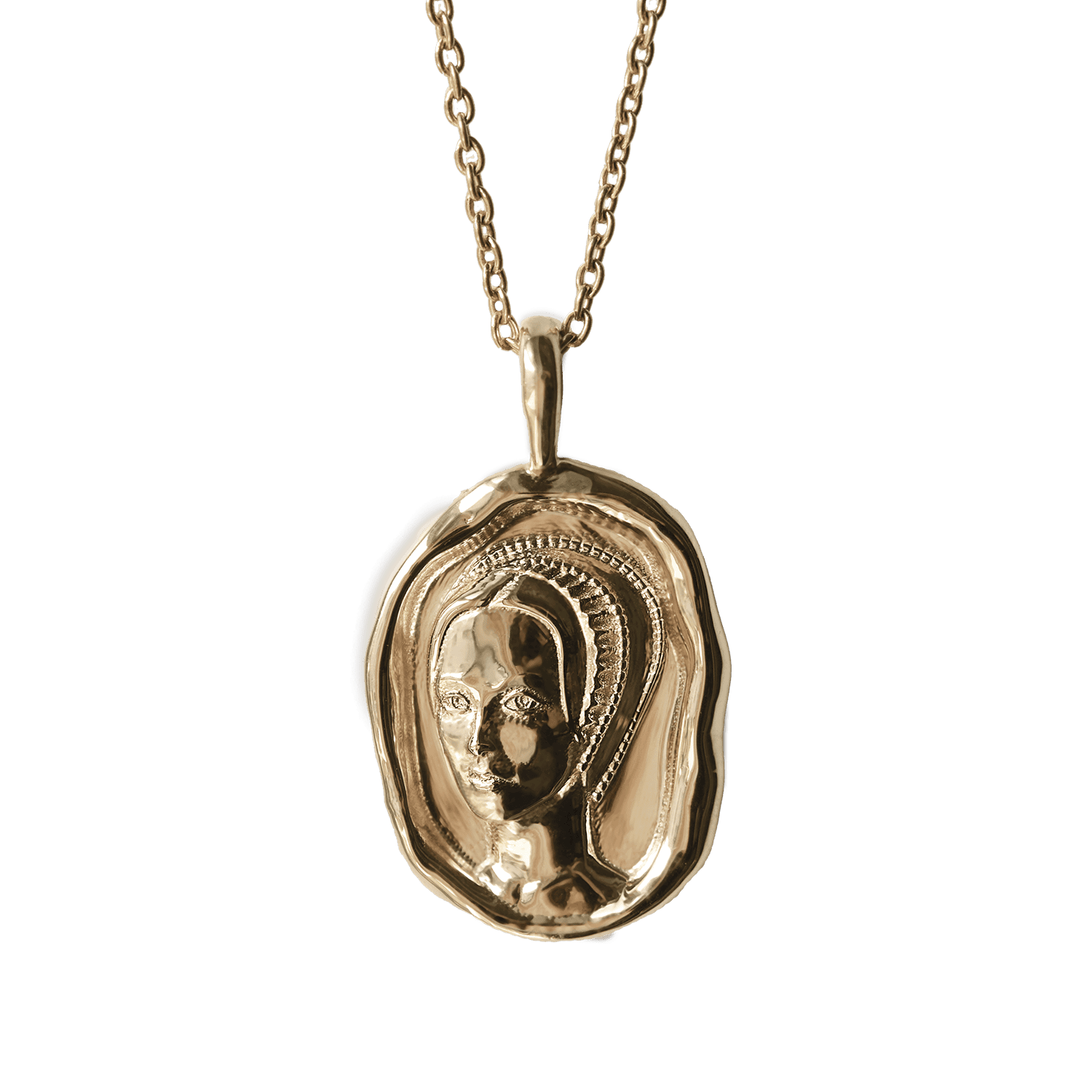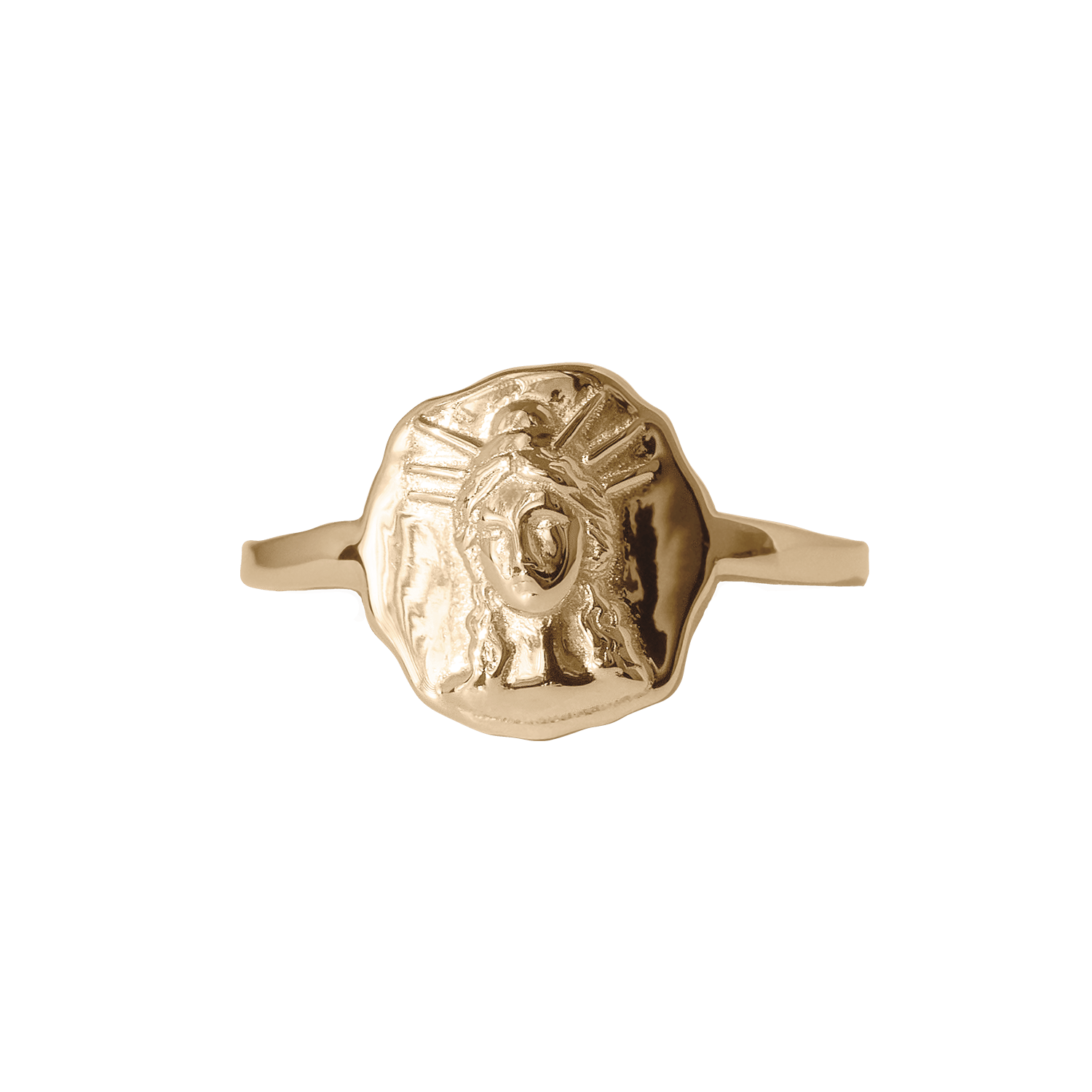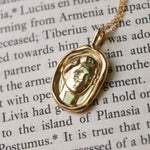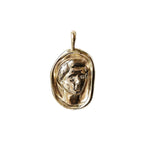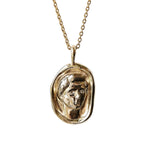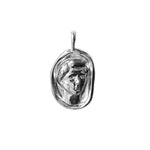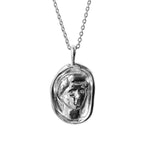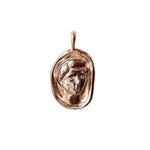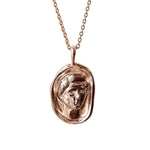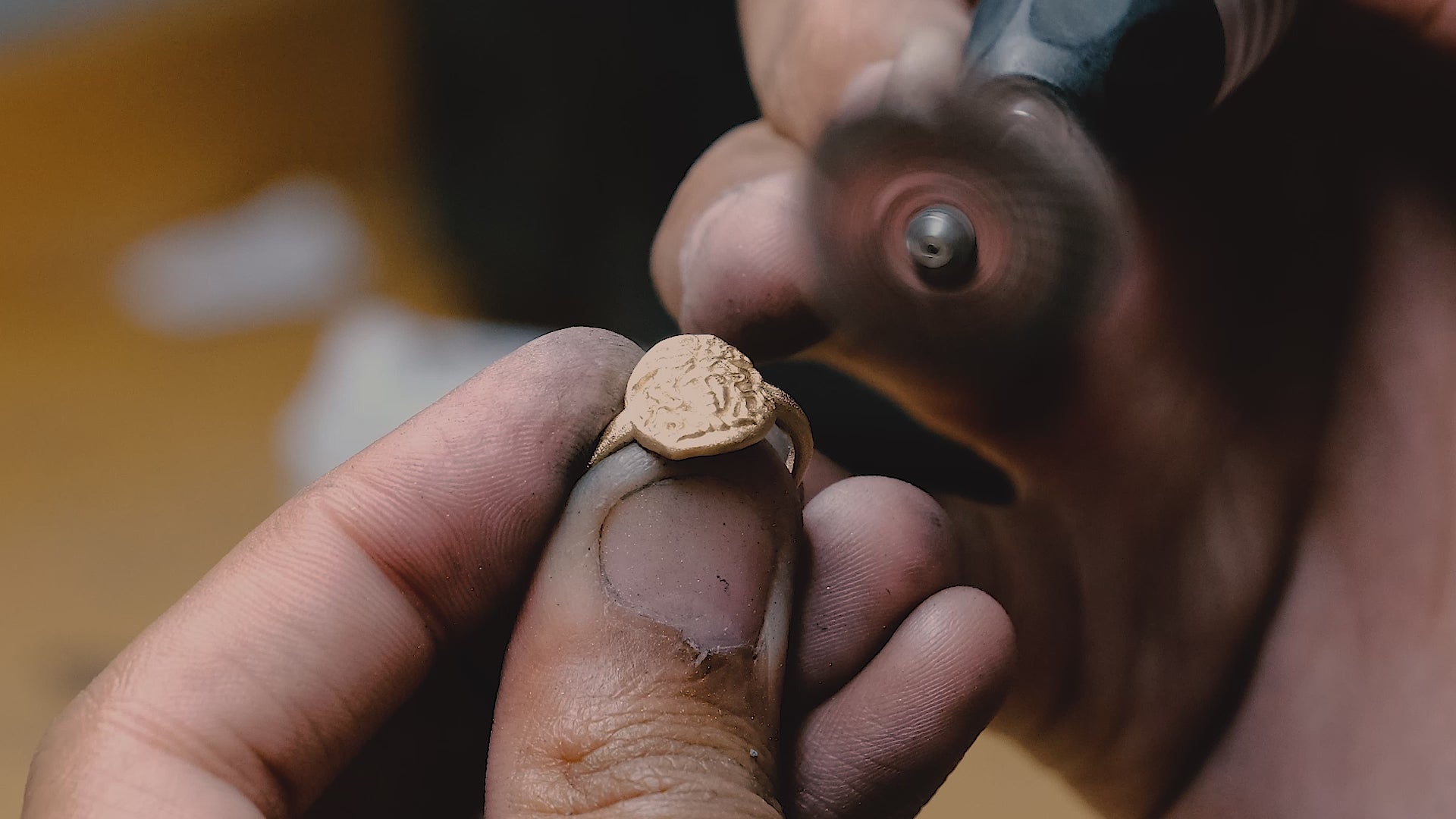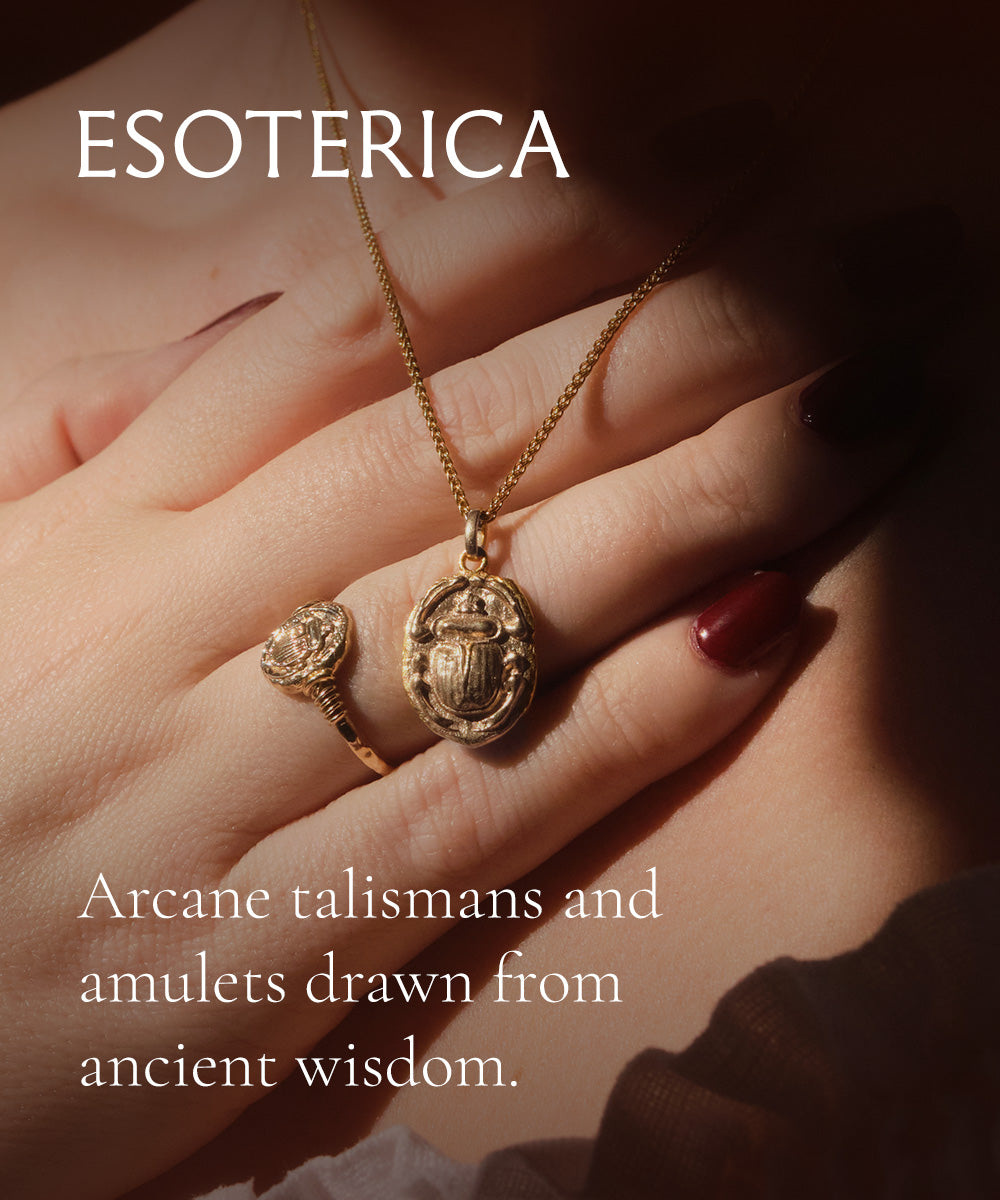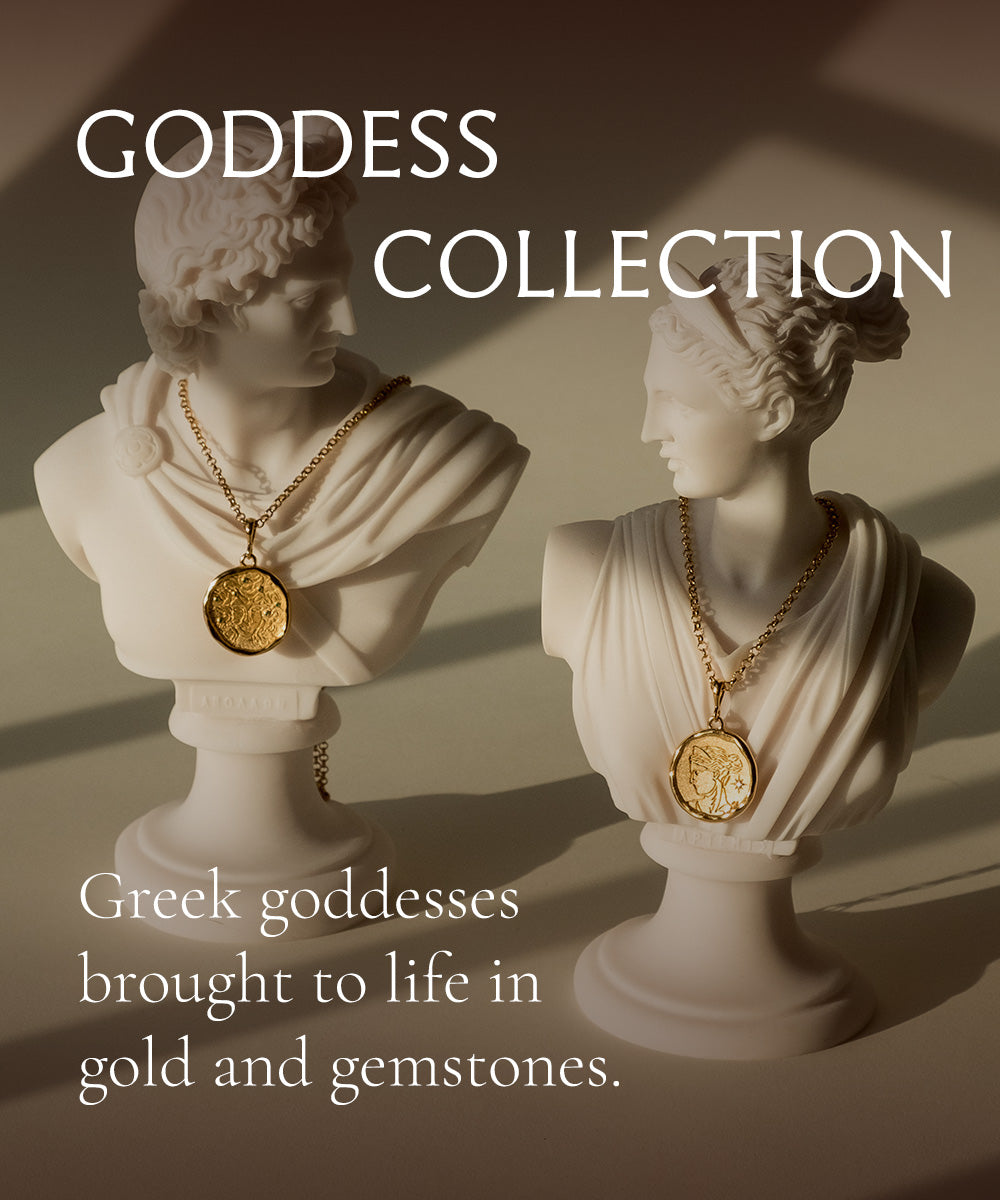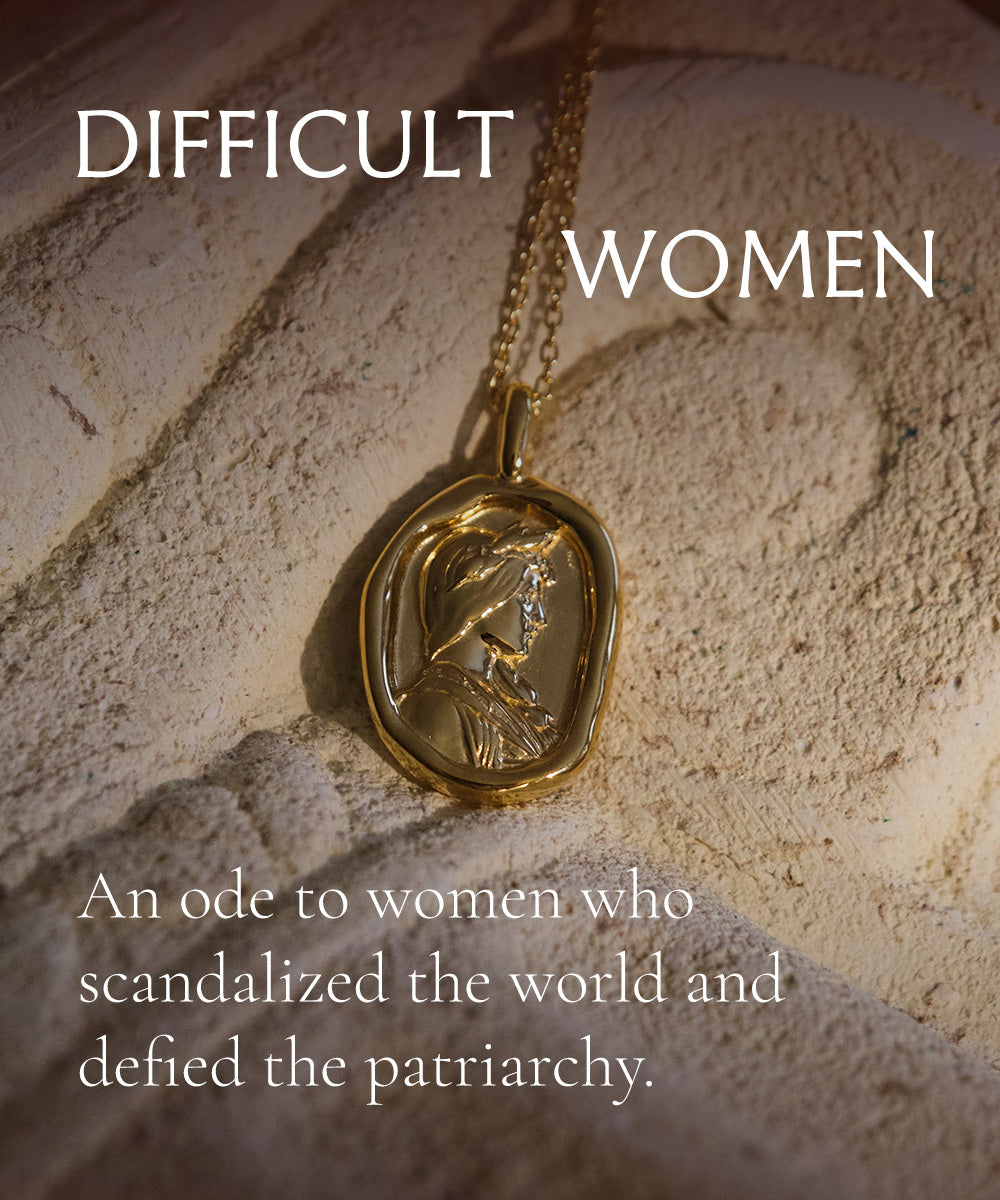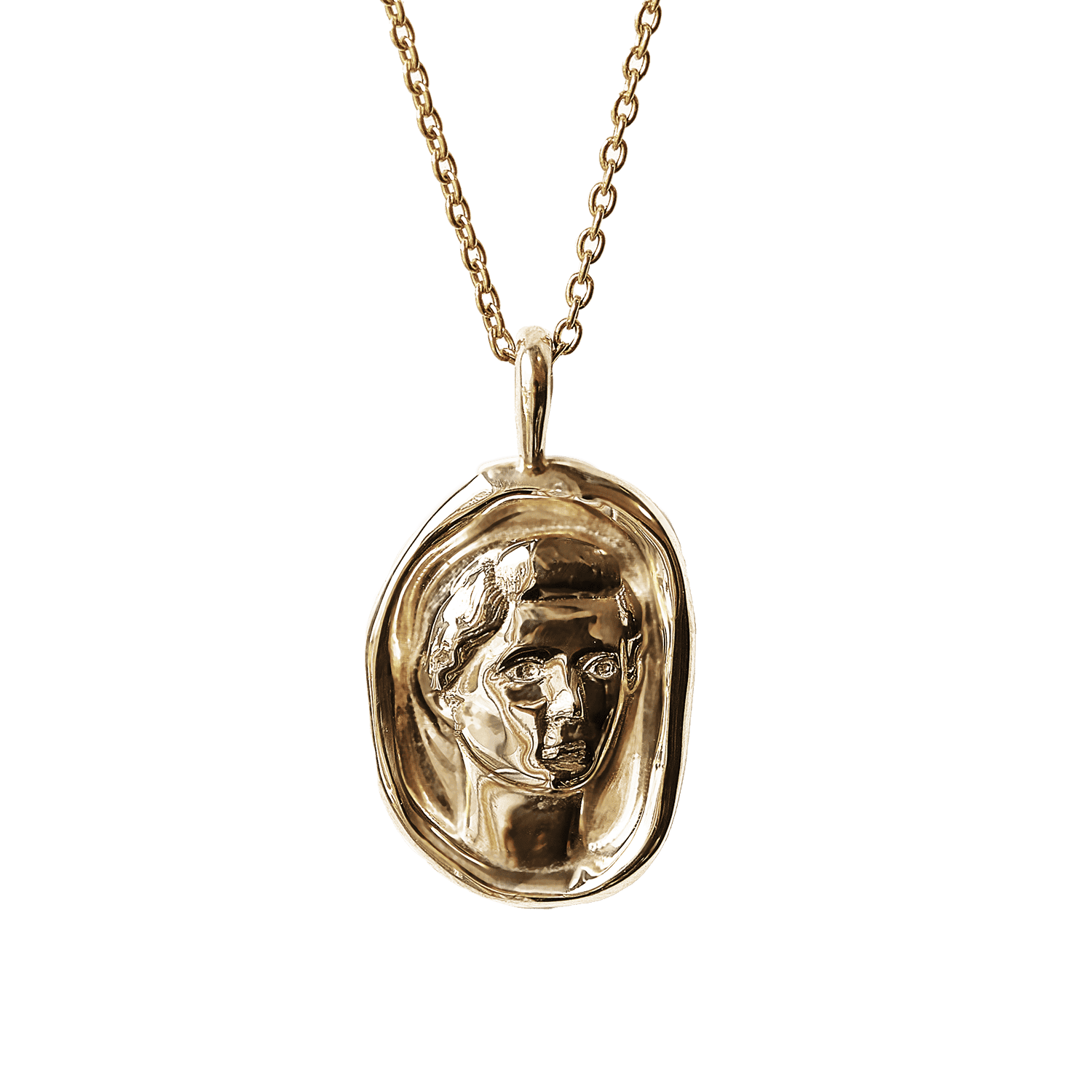
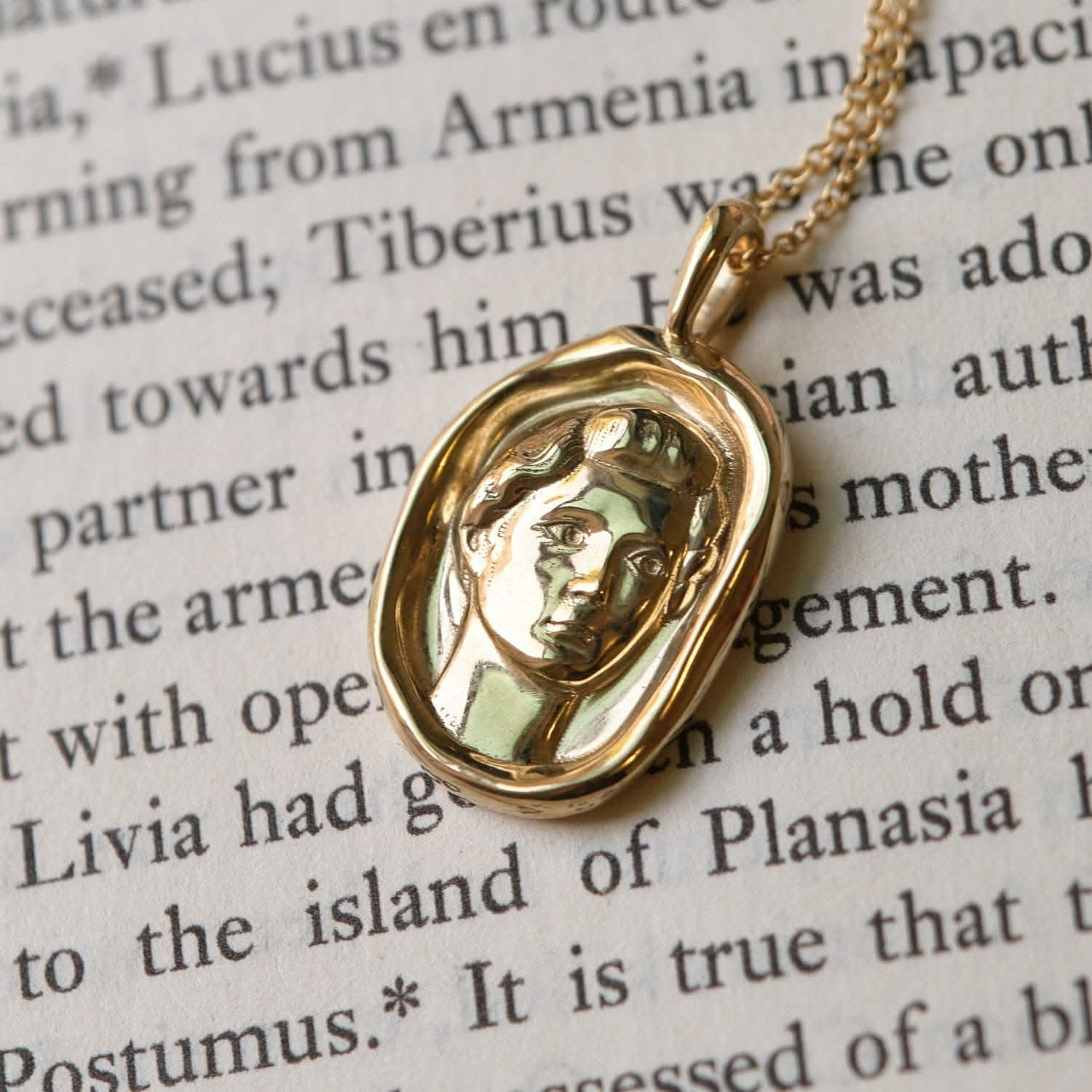
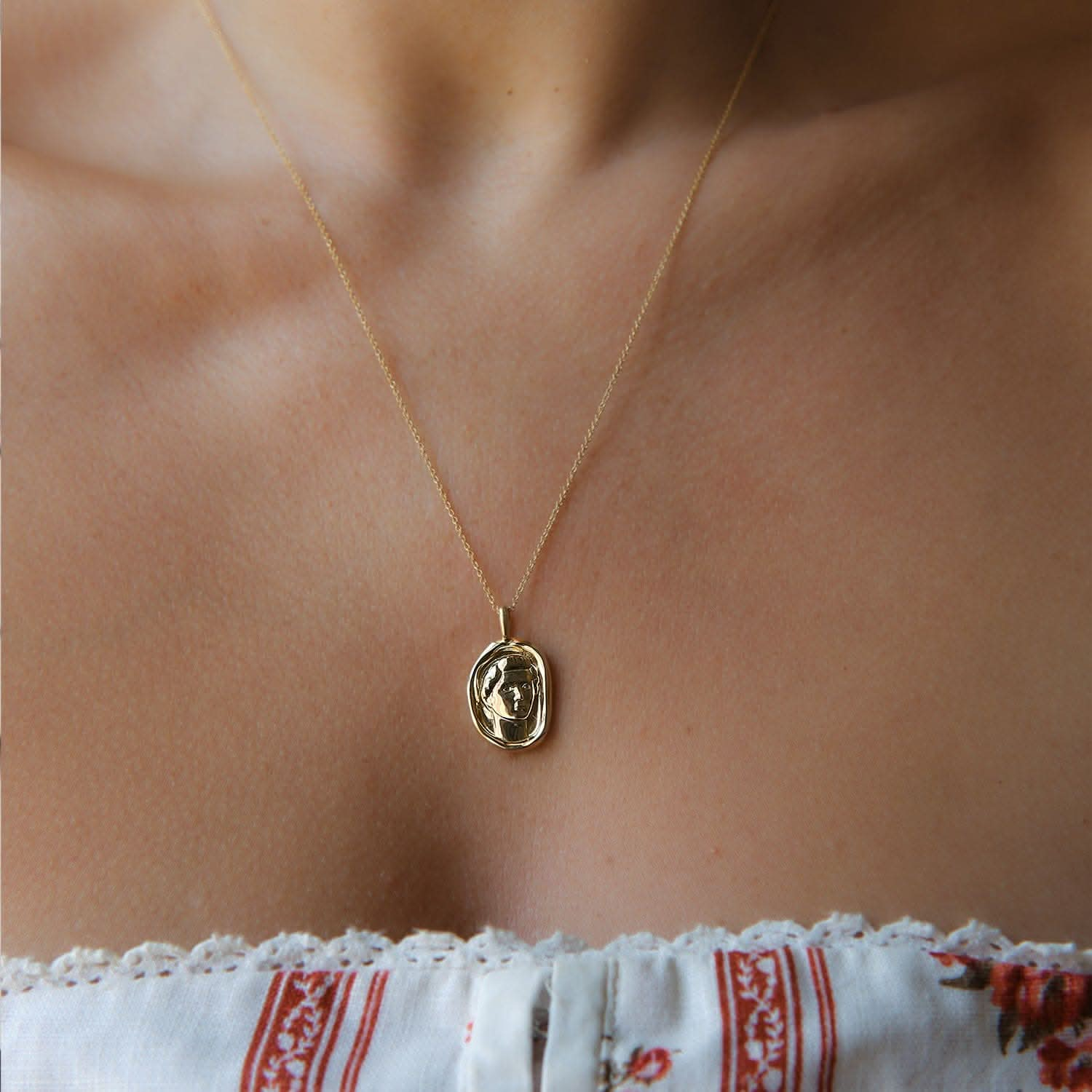

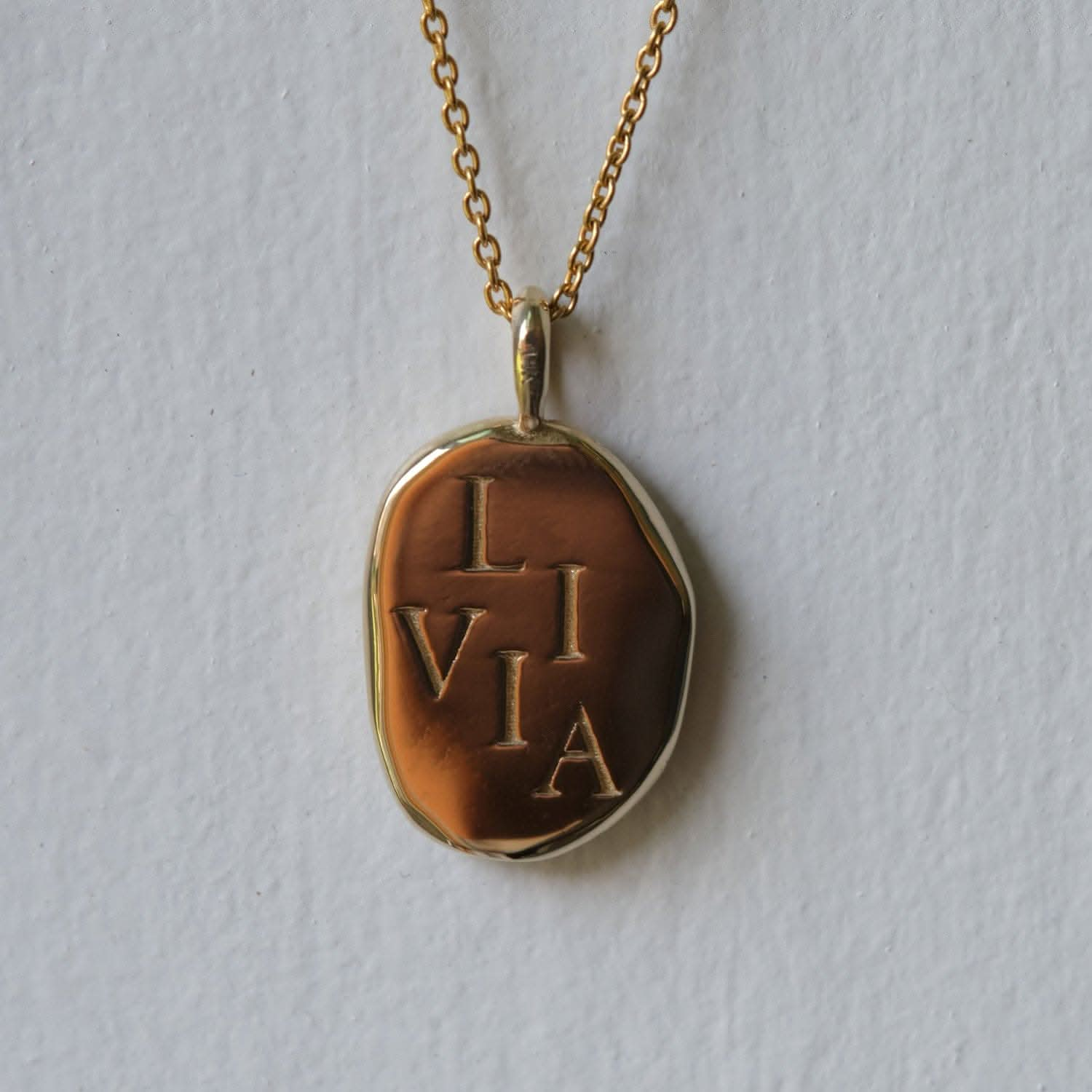
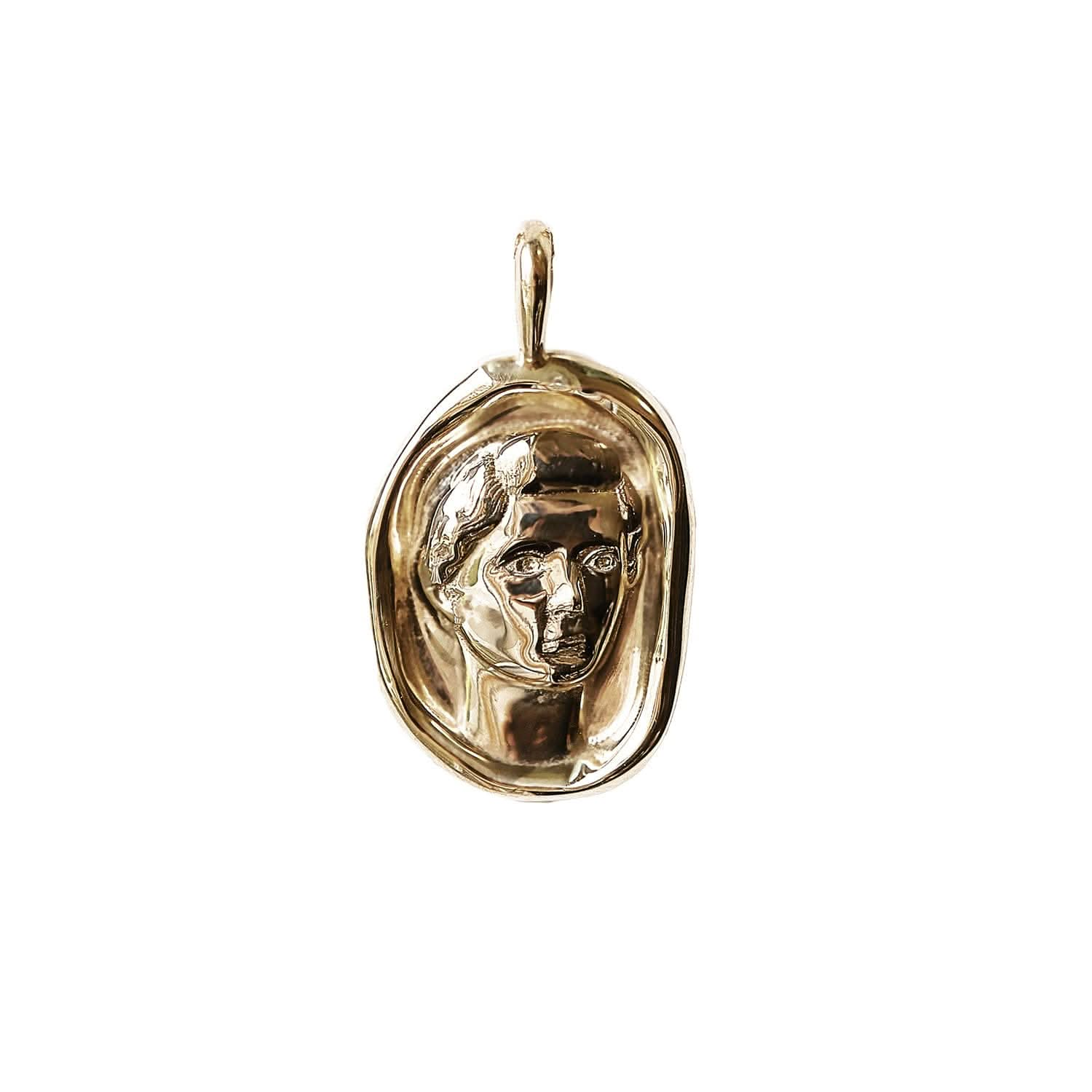
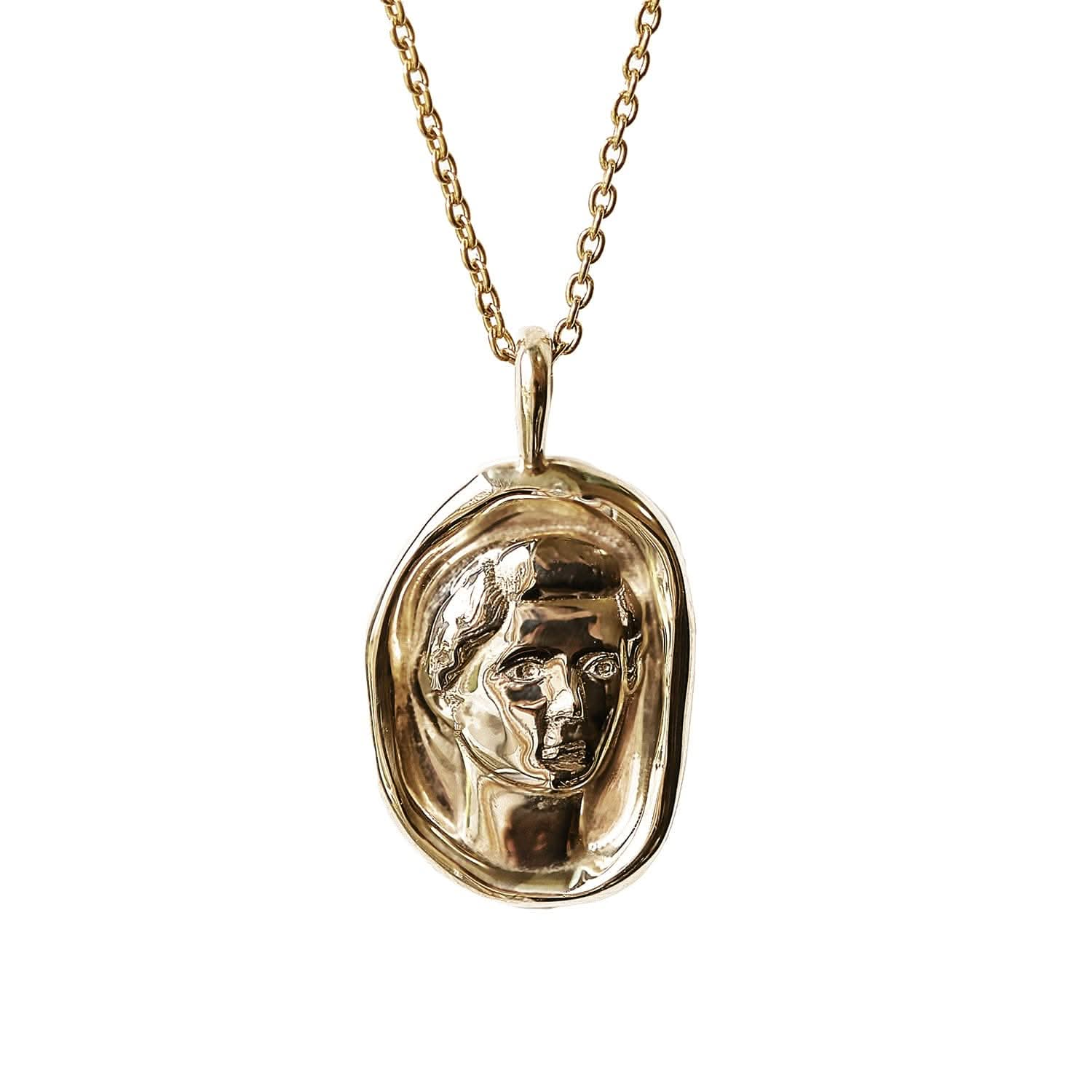
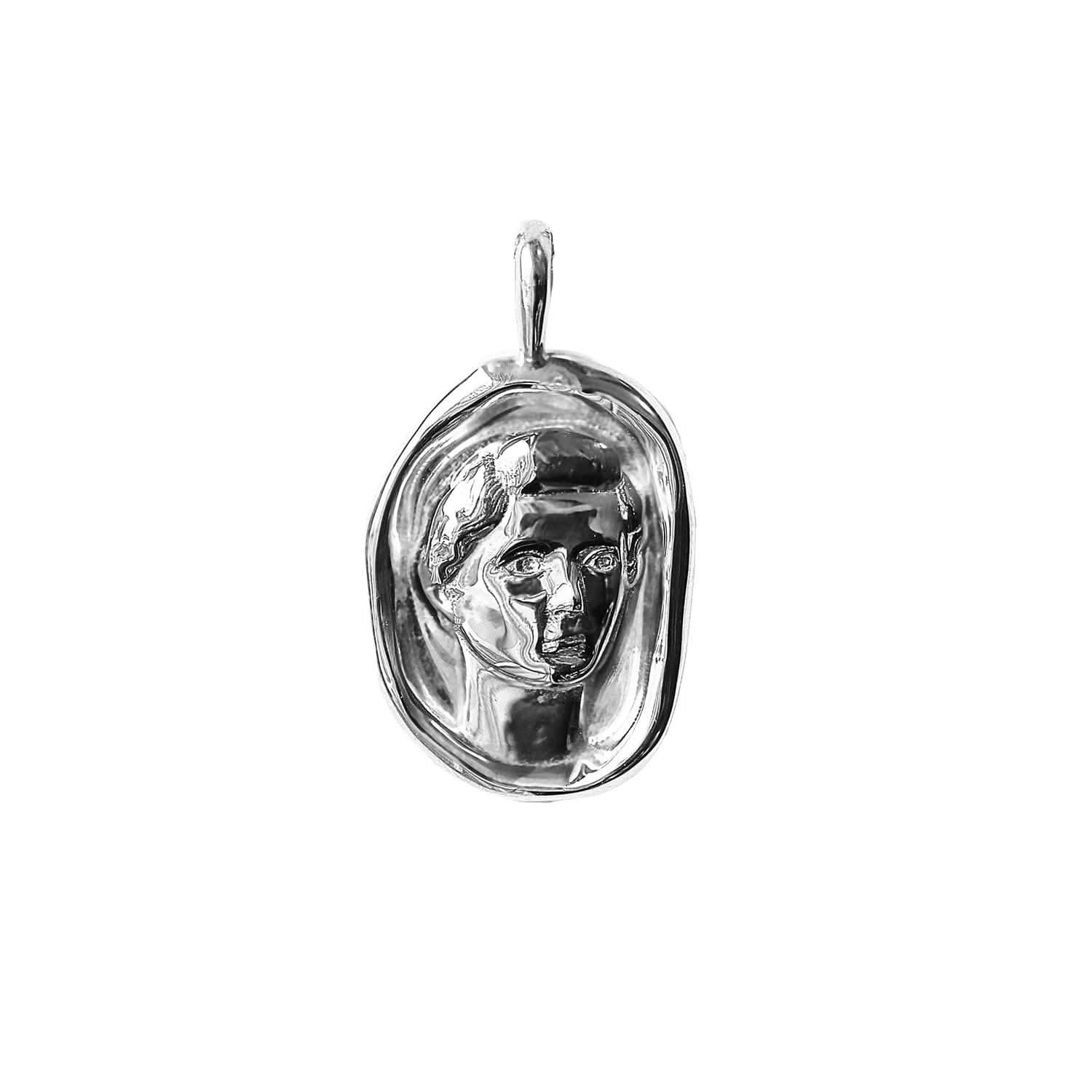
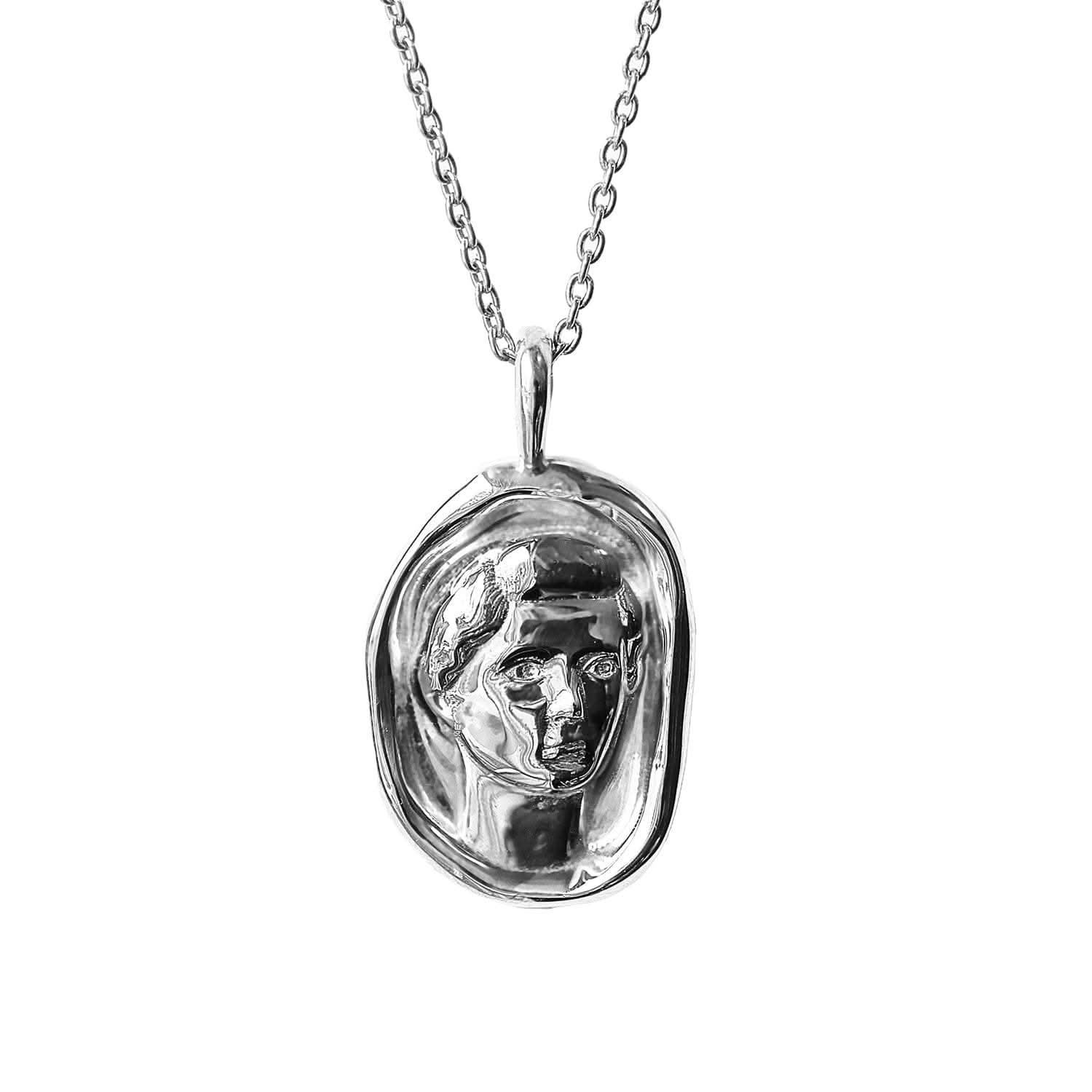
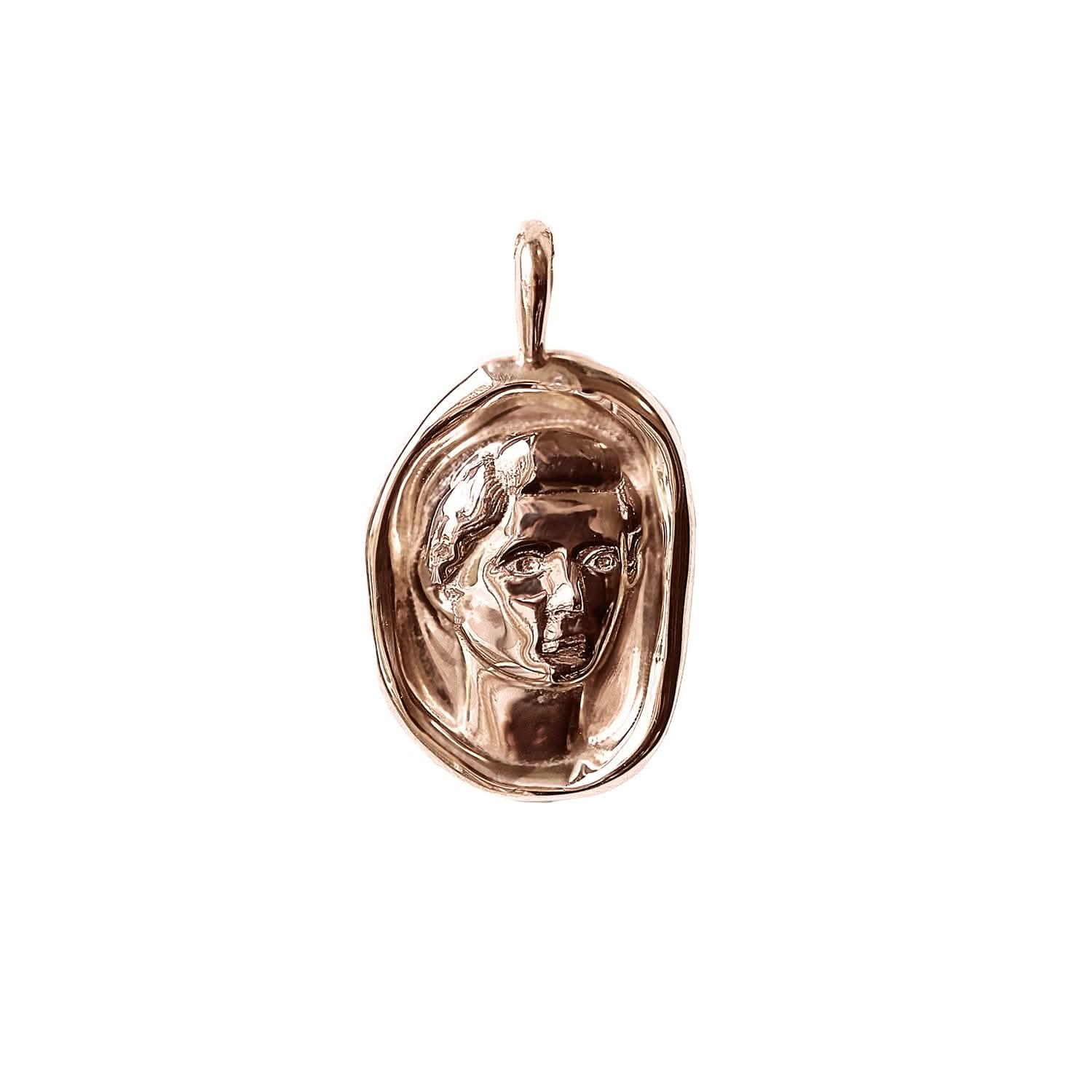
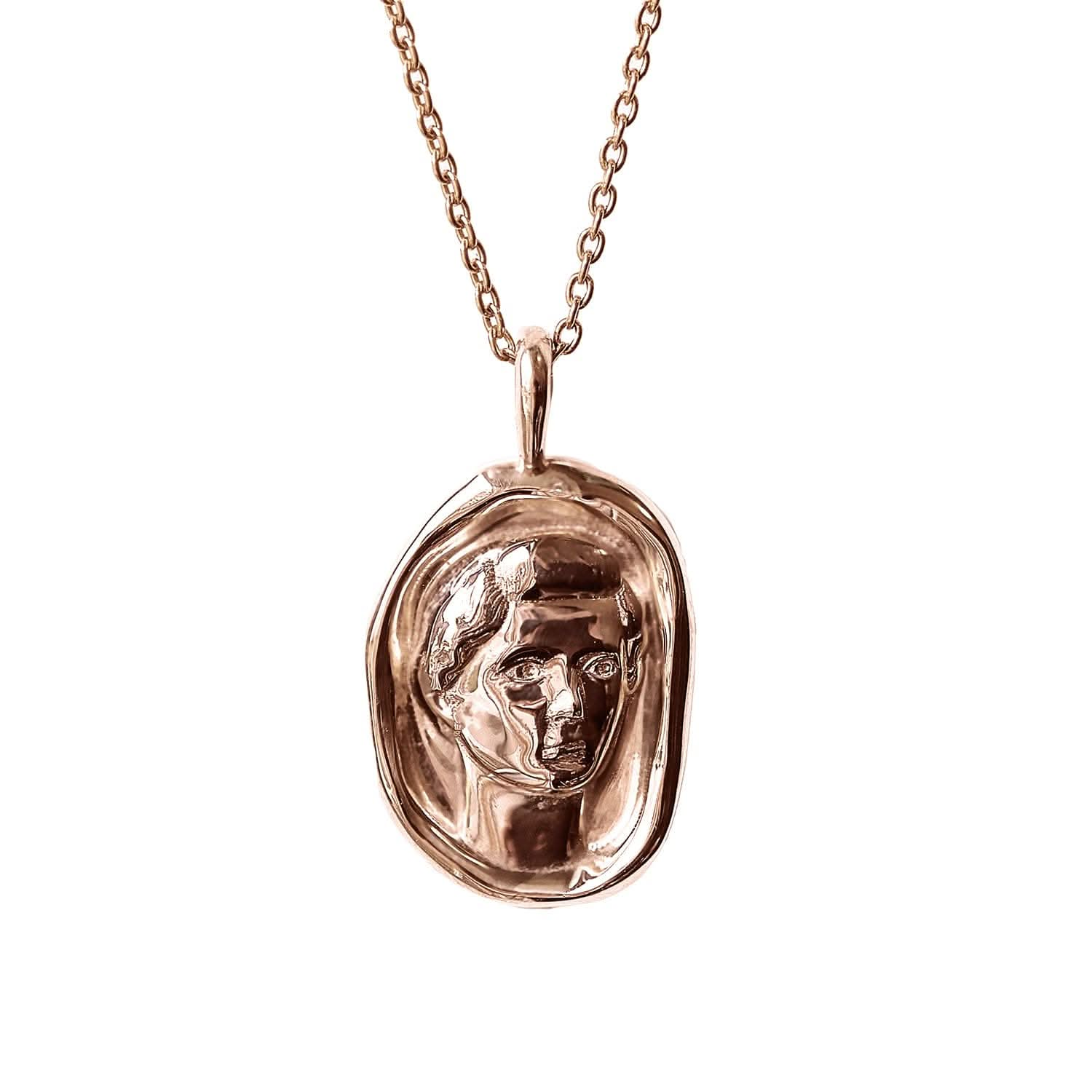

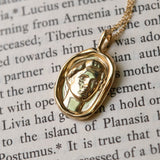



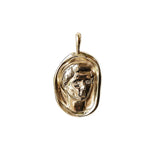
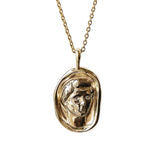
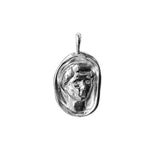
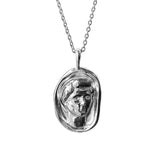
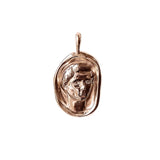
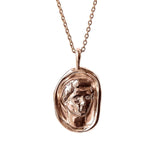
Livia Drusilla Pendant
NOTE: Made-to-order pieces placed after 12/2 will ship after the holidays. Please check your item is in stock if ordering a gift.
Free global shipping
100% recycled solid gold or vermeil
2 year warranty
Fairly made, fairly priced
Livia, also known as Livia Drusilla or Livia Augusta, was the first Roman Empress. As the wife of Augustus, she was a trusted advisor and actively involved in political affairs as he transformed Rome from republic to empire. Like many powerful women in history, she has been painted with a misogynistic brush for millennia, particularly by Robert Graves in I, Claudius.
An astute political strategist, Livia was known for her intelligence, diplomacy, and cultural patronage. She played a vital role in promoting traditional Roman virtues, encouraging morality and family values within society. Livia also supported the arts and literature, fostering a cultural renaissance during the Augustan Age.
She was regarded as the epitome of the ideal Roman matron, embodying dignity, loyalty, and modesty. Livia's public persona set the standard for Roman women, and her influence on fashion and style was widely recognized.
While Livia's reign as Empress was marked by political stability and prosperity, she also faced criticism and accusations of wielding excessive influence over Augustus. Her calculated image and control over the imperial family sparked speculation and conspiracy theories, fueling rumors of her involvement in political intrigues and even poisoning of political enemies.
Livia's impact on the Roman Empire cannot be denied. Her shrewd political maneuvering and cultural influence shaped the foundations of Augustan Rome, as she embraced a role that was unlike that of any other woman in Roman history.
This pendant is based on a famous statue of Livia made during her lifetime in 31 BCE.
Complete the look:
Product Details 🔍
Metal:
100% recycled solid gold or gold vermeil
Dimensions:
22mm x 15mm
3mm thick
Chain:
Gold Vermeil pendant comes with 20 inch 1mm cable chain with lobster clasp
About Solid Gold ✨
Solid gold is the best option if you:
1. Want to wear your piece forever or pass it down as an heirloom. Solid gold will last for centuries without degrading.
2. Want to invest in jewelry as an asset rather than an accessory. Gold traditionally appreciates in value and can always be melted down and made into a new piece
Unlike many brands, our gold is never hollow - it is always 100% solid, cast using the lost wax method, meaning there is a lot more gold in each piece.
Our gold is 100% certified recycled and each piece is handcrafted here in New York.

About Gold Vermeil
Gold Vermeil, pronounced ver-may, is a french term for a style of gold plating that is regulated by the federal government. Unlike "gold plated" jewelry, vermeil must always be on a solid 925 sterling silver base - rather than brass - with at least 2.5 microns thickness of gold. This is 3 times thicker than normal gold plating.
This makes vermeil a longer lasting product than gold plated jewelry, as well as more valuable because it's composed entirely of precious metals.

When will my piece ship? 🚚
Vermeil: 2 business days
Solid Gold: 2 - 3 weeks
We keep a small inventory of solid gold pieces - please check just above the size/color selector to see if your piece is in stock.
If your solid gold piece is not in stock, please see above for the estimated timeframe to ship.
Livia Drusilla Pendant
- Related products
- Recently viewed
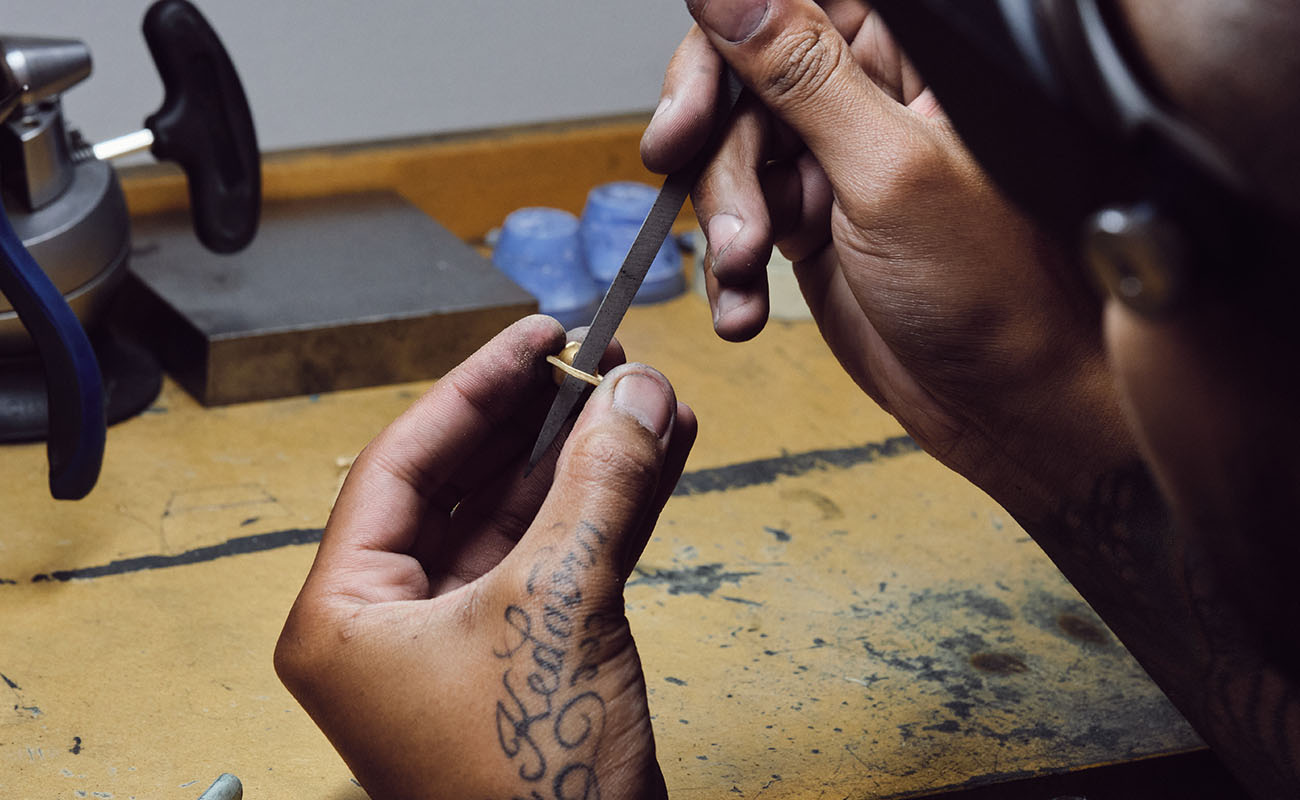
FEATURED BLOG
How We Price Our Gold Jewelry
People are always curious about how jewelry companies price their pieces - how can that tiny little piece be worth $3000? I was one of those skeptical people until I founded...

